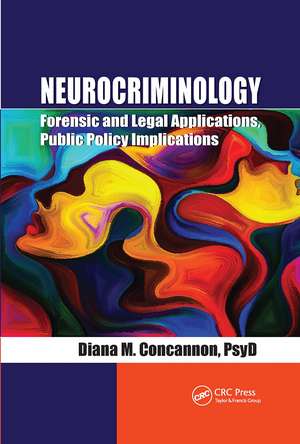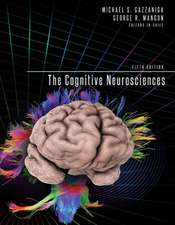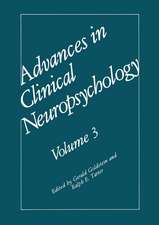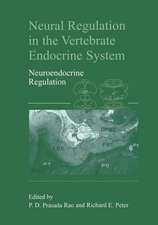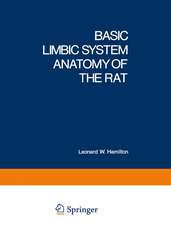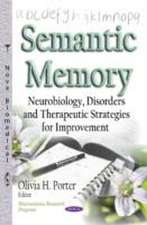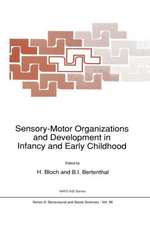Neurocriminology: Forensic and Legal Applications, Public Policy Implications
Autor Diana Concannonen Limba Engleză Paperback – 31 mar 2021
The book poses various questions about what insight neurology can provide to human cognition, to motivation and—in particular—criminal motivation. From biological observations is there a pattern, or are there similarities, in what the brainscan of a criminal looks like? What are the treatment implications and are their valid assessments or treatments that can be used in a corrections environment to curb, or even modify, behavior definitively? And, ultimately, what are the moral, legal and social implications of all? Coverage throughout incorporates leading research that links neurological and biological factors to heightened risk for criminality. This includes coverage of suboptimal arousal (low heart rate), testosterone, neurotransmitters, and variations in MAOA—the so-called "warrior gene"—and more.
Neurocriminology will offer a thought-provoking analysis of the broad-reaching implications of this science to better inform the prevention, investigation, monitoring, and control of crime. This includes the remarkable potential for neuroscience to serve as a resource and potential tool to criminology and penology researchers, psychologists, forensic psychologists, forensic scientists, legal professionals, and investigators of crime and criminal behavior.
| Toate formatele și edițiile | Preț | Express |
|---|---|---|
| Paperback (1) | 495.68 lei 6-8 săpt. | |
| Taylor & Francis – 31 mar 2021 | 495.68 lei 6-8 săpt. | |
| Hardback (1) | 764.55 lei 6-8 săpt. | |
| Taylor & Francis – 11 sep 2018 | 764.55 lei 6-8 săpt. |
Preț: 495.68 lei
Preț vechi: 583.16 lei
-15% Nou
Puncte Express: 744
Preț estimativ în valută:
94.85€ • 101.43$ • 79.08£
94.85€ • 101.43$ • 79.08£
Carte tipărită la comandă
Livrare economică 17 aprilie-01 mai
Preluare comenzi: 021 569.72.76
Specificații
ISBN-13: 9780367778750
ISBN-10: 0367778750
Pagini: 224
Dimensiuni: 156 x 234 x 12 mm
Greutate: 0.32 kg
Ediția:1
Editura: Taylor & Francis
Colecția CRC Press
Locul publicării:Oxford, United Kingdom
ISBN-10: 0367778750
Pagini: 224
Dimensiuni: 156 x 234 x 12 mm
Greutate: 0.32 kg
Ediția:1
Editura: Taylor & Francis
Colecția CRC Press
Locul publicării:Oxford, United Kingdom
Public țintă
Academic, Professional, and Professional Practice & DevelopmentCuprins
Introduction. 1. Neurocriminology: How Did We Get Here? A Brief History of Criminology 2. Brain Basics: How Neurocriminology Is Possible 3. Overview of Advances in Neuroimaging 4. Neurocriminology: Preliminary Applications 5. Criminals in the Lab 6. Neurocriminology in the Criminal Justice System: Prevention and Investigation 7. Neurocriminology in the Criminal Justice System: Prosecution and Sentencing 8. Neuroscience and Law: International Applications 9. Neurocriminology: Present Context and Possible Future
Notă biografică
Diana M. Concannon, PsyD, PCI, is currently Associate Provost for Strategic Initiatives and Partnerships; Dean, California School of Forensic Studies (CSFS); and Director, California Psychology Internship Consortium (CPIC) at Alliant International University, based in San Diego, California. Dr. Concannon has worked at Alliant since 2009 and overseen the establishment and set the curriculum for six California-based PsyD programs in Clinical Forensic Psychology, a PhD program in Clinical Forensic Psychology, a PhD program in Psychology, Public Policy & Law, a blended master’s program in Applied Criminology, and an online master’s program in Applied Criminology. She has taught courses on Advanced Theories of Personality, Forensic Ethics, Foundational Concepts of Victimology I: Victimology Investigations, Victimology Intervention, and Understanding the DSM-5. She is presently developing new programs to advance the university’s mission and goals, including a Master’s of Science Forensic Behavioral Science, a Master’s of Science Forensic Leadership and Administration, and several Advanced Practice Certificates to support emergency responders. She is a forensic psychologist, licensed to practice in California, New York, Utah, and Washington, DC; a Professional Certified Investigator by the American Society for Industrial Security;, a Rape Escape Instructor; and a Loyola Law School-trained Mediator. She is author of Kidnapping: An Investigator’s Guide to Profiling (2008) and Kidnapping: An Investigator’s Guide, Second Edition (2013), both with Elsevier.
Descriere
Neurocriminology explores the dramatic impact of advances in neuroscience research and practice to our present understanding of criminality and crime control.
